
Keep a Close Eye

If your toddler is hitting his siblings, overeating or constantly throwing tantrums, he could be exhibiting early symptoms of behavioral problems—or he could be completely normal. Distinguishing between regular childhood misbehavior and acts that could be cause for greater concern is best left to the experts, but parents can help by avoiding any alarmism and keeping a close eye on their children for any unusual or excessive acting out, says Tovah Klein, director of the Barnard College Center for Toddler Development.
Biting, Kicking, Shoving
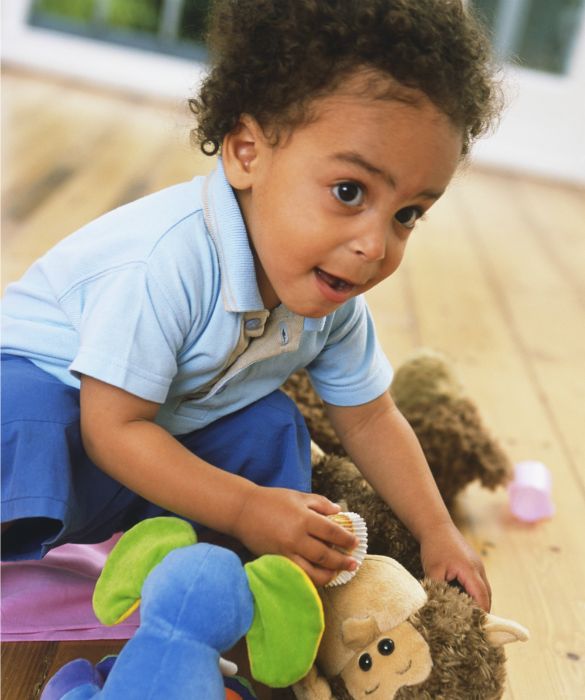
Toddlers will bite, kick and shove for all sorts of reasons. "They don't have a lot of control of their emotional behavior yet," Klein explains. "A child may be really curious about other children and just shove them. They aren't aware that it can hurt." It's important not to shame your child, but to help him stop the behavior. You can give him a stuffed animal on which he can act out his frustrations. If the aggression is frequent and your child is sad a lot, though, consult an expert, Klein says.
Thumb Sucking

Toddlers suck their thumbs as a way to soothe themselves. The act actually helps your child learn to self-regulate her behavior. As long as your toddler is developing normally and the thumb sucking isn't hindering her speech or ability to interact with other children, this behavior isn't something to worry about and will go away as your child gets older. "The less attention you pay to it, the more it will subside," Klein says.
RELATED: Out-of-Control Kids
Constant Pacifier Use
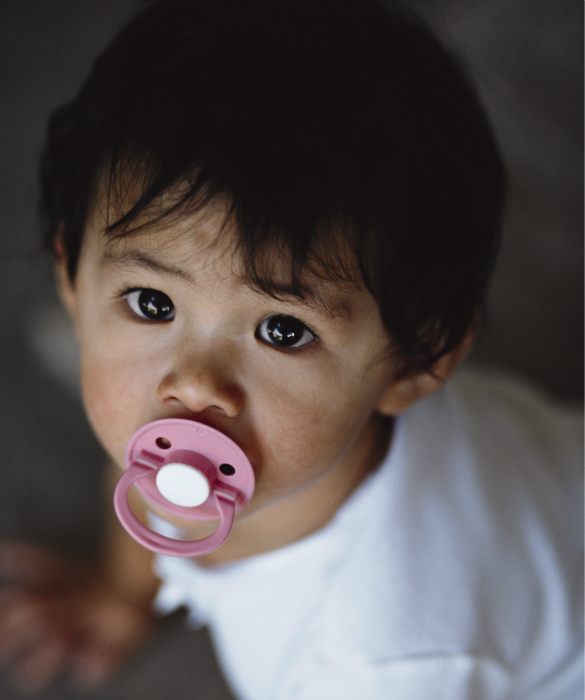
Like thumb sucking, toddlers use pacifiers to calm themselves. But, unlike thumbs, you can actually take a pacifier away from your child if she's relying on it too much or if it's impeding her language skills. Wean your child off it by limiting where and when she uses it—only at bedtime, for example. Have a special spot where she can store it when she wakes up. "It's important to set limits in a positive way," Klein says. "If your child really needs it during the day, let her go into her bed and use it."
Head Banging
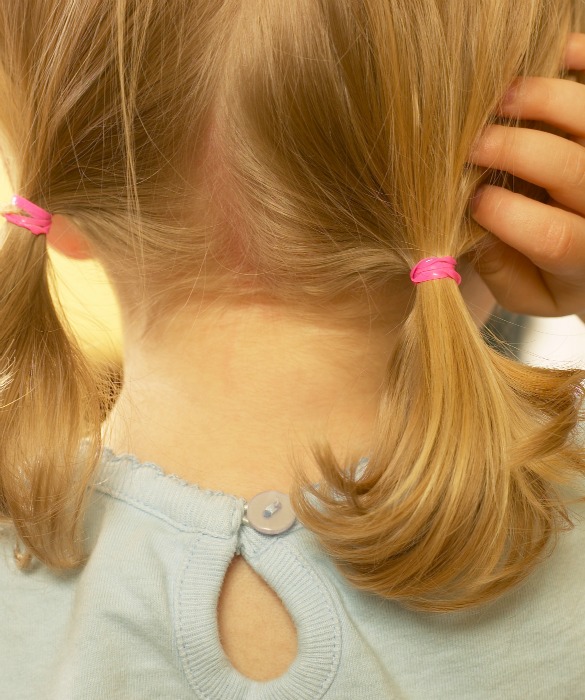
A child experiences the world in very physical ways. At the same time, he's also experiencing new emotions like anger and frustration, and sometimes, if he can't cope, he'll strike his head. "It's very normal behavior, although it's frightening to an adult," Klein says. Parents should learn to recognize the emotion that goes with the behavior and teach their child how to express himself verbally. If your child is zoning out and there doesn't seem to be an emotion accompanying the behavior, consult your pediatrician, Klein says.
Throwing

Toddlers love to throw things. If it's food, they often do it to communicate they've finished eating and are bored. Parents should not address the act; they should just end the meal. "Don't make them feel bad," Klein advises. If your child is throwing other objects, they may just be learning their spatial impact. Give them soft items and a target that won't hurt others. "It allows them to do it, but makes clear that there's a boundary," Klein says.
RELATED: 10 Epic Parenting Mistakes
Body Rocking
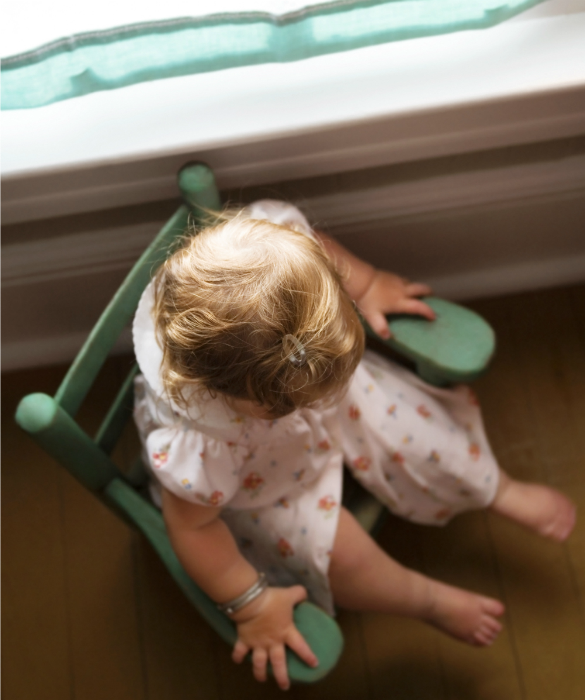
Children will rock their bodies back and forth for a variety of reasons. They may be trying to calm down after an upset, or they may be trying to go to sleep. If your child is developing physically and verbally and is otherwise behaving normally, body rocking is probably not something to worry about, Klein says. If the behavior is unstoppable and preventing him from interacting with other people or his toys, talk to an expert.
Tantrums
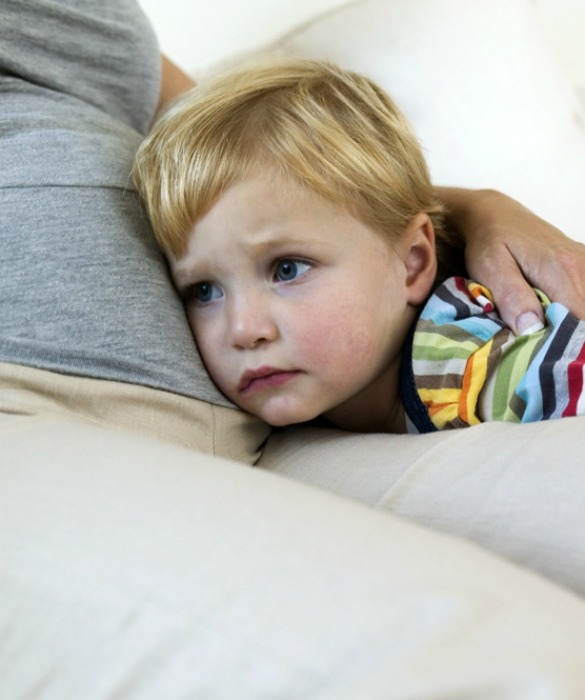
Throwing a tantrum is often a toddler's only recourse when she's frustrated or angry. Let toddlers have their tantrums, and when it's over, acknowledge those frustrations. "Don't cajole them out of a tantrum or just try to make them happy," Klein says. "When it's over, hug them and reassure them. The really important part of a tantrum is the repair. The child learns, 'I can be really upset, but I'm still OK.'" If the tantrums are very frequent, unusual or not getting any better, talk to an expert.
Masturbation

Toddlers will touch themselves because they're curious about their bodies and because it feels good. "Their bodies are very interesting to them, and they're starting to notice that some children have penises and others have vaginas," Klein says. "It's not a big deal." While it may be embarrassing if this occurs in public, the best thing to do is let them know they can do that when they get home, but don't make a big fuss about it, as it will only increase the behavior.
RELATED: 20 Discipline Mistakes All Moms Make
Sleeping With Mommy and Daddy

If you want your toddler to sleep in her own bed and she's having trouble getting through the night alone, acknowledge her anxiety. "Toddlers are at the height of learning to separate from mommy and daddy, and sleeping alone, for many, is a place where they feel they [just] can't separate," Klein says. At bedtime, give your child something that reminds her of her parents, like a stuffed animal, a family photo, or mommy or daddy's shirt, and remind her that you'll see her in the morning when everyone reunites after a night apart.
Too Much Screen Time

If your toddler is constantly in front of the television, computer, iPad or video game, set up a routine that puts limits on his screen time. "Toddlers thrive on routine, so if you limit it to once a day, they can stick to it," Klein says. "It's really up to the parents to set limits though. If you're pulling out your iPhone all the time, then it's hard to get your child to limit their screen time."
RELATED: Do Our Kids Need to Hate Us?
Seeking Bribes
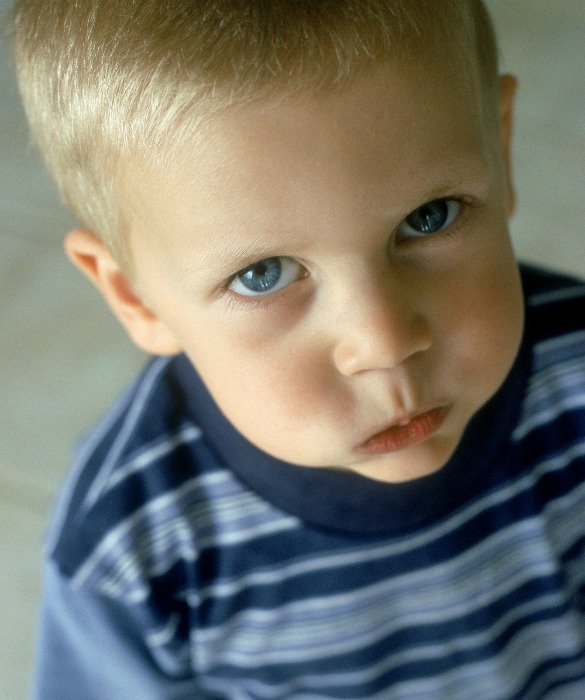
If you're constantly rewarding your toddler with treats when she's good, she may learn that she should only behave when she's offered a bribe. "This works against helping them learn internal control of their behavior. Instead, they learn they can turn the tables and say they will only behave if they get something in return," Klein says. "It also sends the message that when I'm bad, I don't deserve anything and when I'm good, I'm loved." Save rewards for rare occasions and remind your child that you love her no matter what.
Overeating

If your toddler is overeating, he may be doing it to soothe himself in moments of upset, or he could be confusing hunger with being tired. Try to see if there's an emotional connection to his behavior and re-engage him if he's tired or needs some mommy- or daddy-time. "If you know your child is well-fed, you don't have to give them snacks every time they say they're hungry," Klein says. "Maybe they just need some cuddle-time."



